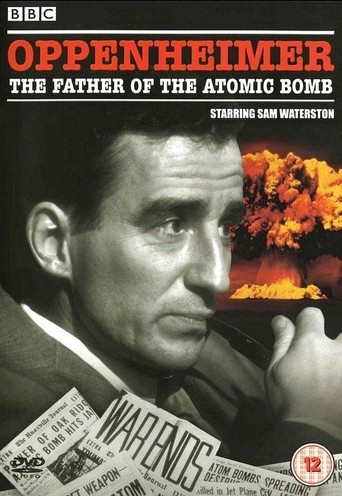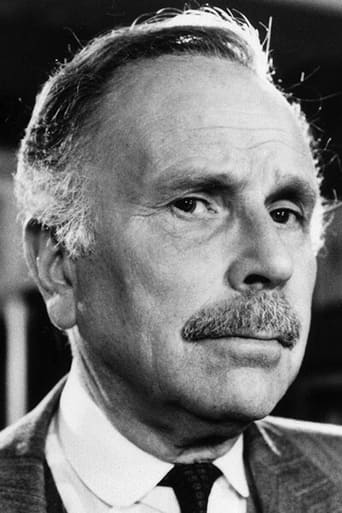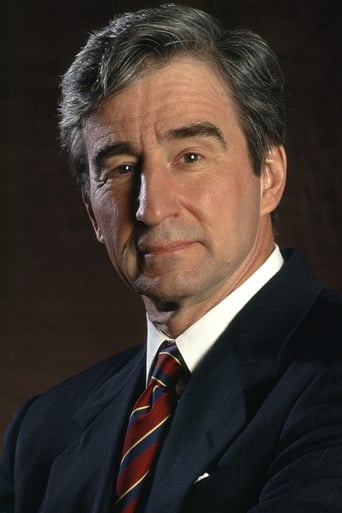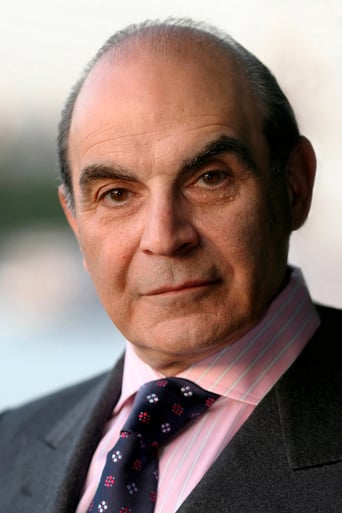

Oppenheimer (1980)
Biography of the American physicist who led the U.S. effort to develop the atomic bomb during World War II, only to find himself suspected as a security risk in the 1950s because of his increasing ambivalence about the effect of his life's work.
Watch Trailer
Cast
Reviews
Save your money for something good and enjoyable
Just perfect...
Good movie, but best of all time? Hardly . . .
Excellent, Without a doubt!!
Just as a reminder to anyone just now reading the comments on this excellent BBC mini-series, published in 1981, it was not available on DVD until the last few years. Since then, it has become available, but initially only in the British format (for which I bought an 'international' DVD player, which you have to hack--illegally, I suspect, to see it), but the series is now available through amazon.com--3 discs-- for between $19-21, to be viewed on DVD in the US format, no hacking. There were 41 reviews, average 5 stars. This mini-series is one of the very best on Oppenheimer, or the Manhattan Project, or virtually anything produced by the BBC.
President Harry S. Truman once said that the only thing new in the world is the history you don't know.Seven years before Richard Rhodes' superb Pulitzer Prize-winning "The Making of the Atomic Bomb," the BBC produced a seven-part miniseries, "Oppenheimer," that was a character study of the people who designed and built the weapon that ushered in the Atomic Age, permanently joining science and technology to the state (and, in particular, the military), not merely making history, but changing the world forever.The production is impeccable, the casting nothing short of miraculous; not only the main characters, but even secondary characters bear uncanny resemblances to the persons portrayed. In particular are Sam Waterston in the title role of American physicist J. Robert Oppenheimer, scientific director of the Manhattan Project, who was based at the Los Alamos, NM, laboratory (the site for which he personally chose); Manning Redwood as General Leslie R. Groves, who oversaw the entire Manhattan Engineering District (the project's formal name); David Suchet as physicist, and ultimate nemesis of Oppenheimer, Edward Teller (who, nearly forty years later, whispered into Ronald Reagan's ear and brought us the Strategic Defense Initiative - "Star Wars") and Jana Sheldon as Kitty Oppenheimer. The attention to detail is uniformly excellent throughout.Part thriller, part love story - and ultimately a tragedy, this series faithfully recreates a chapter in world history - and that of science - that we dare not forget. Highest recommendation.(NOTE: Viewers who enjoy this series will also enjoy Jacob Bronowski's 13-part series "The Ascent of Man" and the BBC film of Michael Frayn's play "Copenhagen".)
>>> Great News there is a BBC DVD release scheduled for 31st July 2006,UK - there is also a scheduled release in States - don't know the date - can't wait ! ! <<<<>>>> below is my original comment <<<<<I agree with all the other reviewers - it is simply staggering that one of the greatest TV dramas ever has never been released on DVDThe story line is gripping - the acting is outstanding and the character development is enthralling !Over here in the UK we have quite a history of getting TV drama series and films out onto DVD through popular campaigns It's very hard to see why the rights owners do not go into a DVD production ? I'm going to e:mail one of the leading players in this grass roots movement and see what happens. Who did the production ? was it BBC ? RW
Like an earlier commenter, I saw it in 1980 and have never been able to shake the memory of the gripping story and splendid acting. The dramatic score by Carl Davis is majestically bombastic, as befits a story about a bomb, and hard to forget. The film certainly contains some of Sam Waterston's finest work. He and the writers depict Oppenheimer not simply as an unjustly victimized hero -- which he was -- but also as naive, fond of alcohol, given to mixing with the wrong women and the wrong political crowd, and snobbish, a rounded portrait instead of a stereotype.Dozens of scientists are gathered together in the New Mexico desert to work on the first atomic bomb. Oppenheimer runs the brains, but the general in charge of the overall operation -- building the bomb, building the buildings, maintaining security -- is Leslie Groves, the Grand Panjandrum who pronounces Russians as "Roosians". He's an engineer and constantly worried that these commie eggheads are doing too much talking and not enough work. "We've got the finest scientists in the WORLD," he crows, "and they're all OURS." They include immigrants, many of them Jews, from Italy, Hungary, Britain, Germany, and so forth, as Oppenheimer points out. "Yes -- but they all come HERE!", shouts groves, indignant and puzzled.All of the characters are as complex as they would be in real life. We see plenty of Oppenheimer's anguish as he obeys the military. But in many ways, the figure of General Leslie Groves (Manning Redwood) is the most interesting because his complexity is reduced to a point that renders it easy to grasp. We, as adults, can empathize with ambiguity better than we can understand the simple single-mindedness of a child.He's a chauvinist and a moral nihilist. Instead of a dozen scientists cooperating on different parts of the bomb, he wants to seal them off from each other to enhance security, which is anathema to these idealists. One can easily imagine a heroic John Wayne in the role. "It's INTERESTING? I don't want something interesting; I want a BOMB." (Groves is usually shouting.) He seems almost to set out to make a buffoon of himself in the eyes of all these academics. One of his exit lines from an argument is that he doesn't have a Ph.D. like the rest of them but he's spent eleven years in military administration and construction. "Let's see. That's the equivalent of two Ph.D.s, isn't it?" He leaves the eggheads agog as he sweeps through the door because the only thing that matters to them is their brilliance and the usefulness of their contributions to the project.And when the gadget is finally used on Hiroshima and Nagasaki, and everyone is watching films of the destruction -- both cities laid waste; prisons, schools, hospitals and individuals vanished -- the scientists are thoughtful and silent. Not General Groves. He's jumping for joy. "One bomb did all that -- and it's OURS!" One hundred and fifty four prisoners dead in their cells? "Right on the BUTTON!" Later he chides Oppenheimer for his remorse, assuring him that he'll get over it. But, as adults, we know that it was a terrible instrument of war and it was terrible to use it, whether we had any choice or not. How many of Edward Teller's "superbombs" do we and the rest of the world have in our arsenals now. It must be in the thousands, isn't it?Of course this is a topical biography of J. Robert Oppenheimer, not the story of the conception, building, and deployment of the first atomic bombs. If you want the context, an hour-long documentary is available free on YouTube: The Moment in Time: The Manhattan Project. It's interesting in its own right.This was one of the finest miniseries I've ever seen on television, and there wasn't a serial murderer in it, unless they were all serial murderers.


